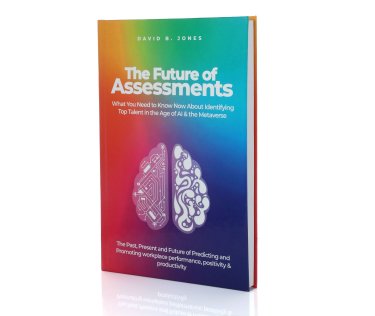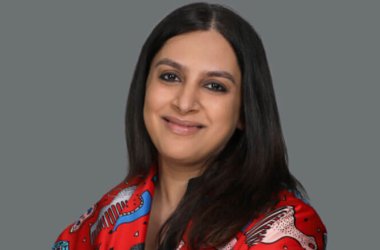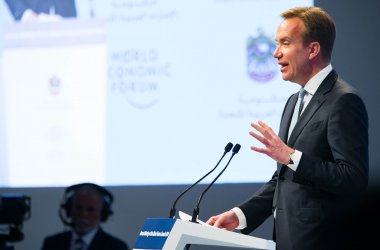The Talent Enterprise launches ‘The Future of Assessments’, a visionary book by CEO David Jones, highlighting the shift from traditional IQ tests to AI-powered assessments for identifying high-potential talent.

‘The Future of Assessments’ reveals how the regional workforce is changing its orientation to work, especially amongst key demographics – young people, women, expatriates and those previously under-represented in labour markets. According to Jones, there are 21 priorities that will be occupying the thoughts, agendas and to-do lists of people and talent professionals for the foreseeable future.
This includes more people looking for a greater sense of meaning, wellbeing, and identity from their work, as well as an emphasis on youth, the development of immersive online experiences, sustainability, digital readiness, wellbeing, gamification, a positive organisational culture and more.
Data from the book indicates:
- Workplace assessments developed in the West in the early 20th century, such as the IQ test and MBTI, are increasingly irrelevant in the modern workplace, with a preference instead for specific assessments to measure a range of independent cognitive capabilities more suited to predicting performance more relevant to workplaces in the mid 21st
- Based on extensive primary and secondary research, The Talent Enterprise has identified four critical universal dimensions for identifying high-potential talent. These key indicators are:
- Having the cognitive ability to take on more complex tasks, deliver value and contribute to the future growth of their organisation.
- Demonstrating the right leadership behaviours and competencies to manage themselves, while also being able to inspire, lead and manage others in the modern workplace.
- Commitment, alignment and personal engagement with an organisation’s values, vision, strategy and business objectives are crucial to its success.
- Finally, high-potential talent must have an aspiration to develop and grow and must demonstrate a growth mindset and invest in their own professional development.
- According to The Talent Enterprise’s data, having the right leadership behaviour is typically the strongest predictor of high-potential talent, followed by cognitive ability, and both commitment and aspiration in equal measure.
- Research by The Talent Enterprise has revealed that high-potential leaders have 4X higher accountability, 22% more resilience in dealing with challenges, 37% higher self-efficacy and a greater sense of personal agency.

David Jones, author of ‘The Future of Assessments’, commented: “With the advent of the fourth industrial revolution and the substantial shift in the way we work today, organisations and nations around the world face a daunting challenge in sourcing talent. While markets such as the UAE and Kingdom of Saudi Arabia (KSA) remain beacons for global talent, the rapid evolution of the working environment and technological innovations have compelled organisations to fundamentally re-evaluate their working practices – there is an increasing urgency to adopt new assessment methods to recruit, develop, engage and promote talent. Many employers and recruiters are still oblivious to the extent of technology’s benefits in giving them a strategic advantage in the war for talent in global labour markets which are increasingly tight. The talent assessment industry is ripe for fundamental positive disruption going forward. Harnessing the power of new technologies like Artificial Intelligence (AI), Machine Learning (ML), Virtual Reality (VR), and the metaverse, will be crucial in identifying attributes which can make a significant impact on an organisation’s productivity and performance.”
‘The Future of Assessments’ adds to Jones’ collection of publications that include the best-selling ‘Unlocking the Paradox of Plenty’ and award-winning ‘Game Changers’. He has also contributed to books such as ‘Employment and Career Motivation in the Gulf States’ by Gerlach, ‘The Political Economy of Wasta’ by Springer, and ‘Policy Making in the GCC’ by IB Tauris.
As one of the most pioneering human capital technology start-ups to be founded in the UAE in 2013, The Talent Enterprise with global expansion and presence across the GCC, Europe and Asia Pacific, offers innovative talent and leadership assessments to governments and leading private sector organisations, including workplace wellbeing, sustainability, digital readiness surveys and multi-rater feedback and diagnostics.





